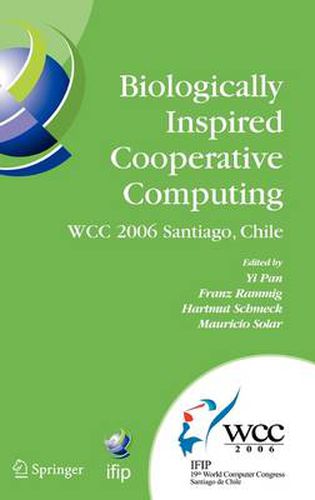Readings Newsletter
Become a Readings Member to make your shopping experience even easier.
Sign in or sign up for free!
You’re not far away from qualifying for FREE standard shipping within Australia
You’ve qualified for FREE standard shipping within Australia
The cart is loading…






This title is printed to order. This book may have been self-published. If so, we cannot guarantee the quality of the content. In the main most books will have gone through the editing process however some may not. We therefore suggest that you be aware of this before ordering this book. If in doubt check either the author or publisher’s details as we are unable to accept any returns unless they are faulty. Please contact us if you have any questions.
In the world of information technology, it is no longer the computer in the classical sense where the majority of IT applications is executed; computing is everywhere. More than 20 billion processors have already been fabricated and the majority of them can be assumed to still be operational. At the same time, virtually every PC worldwide is connected via the Internet. This combination of traditional and embedded computing creates an artifact of a complexity, heterogeneity, and volatility unmanageable by classical means. Each of our technical artifacts with a built-in processor can be seen as a “Thing that Thinks , a term introduced by MIT’s Thinglab. It can be expected that in the near future these billions of Things that Think will become an ‘'Internet of Things , a term originating from ETH Zurich. This means that we will be constantly surrounded by a virtual organism of Things that Think. This organism needs novel, adequate design, evolution, and management means which is also one of the core challenges addressed by the recent German priority research program on Organic Computing.
$9.00 standard shipping within Australia
FREE standard shipping within Australia for orders over $100.00
Express & International shipping calculated at checkout
Stock availability can be subject to change without notice. We recommend calling the shop or contacting our online team to check availability of low stock items. Please see our Shopping Online page for more details.
This title is printed to order. This book may have been self-published. If so, we cannot guarantee the quality of the content. In the main most books will have gone through the editing process however some may not. We therefore suggest that you be aware of this before ordering this book. If in doubt check either the author or publisher’s details as we are unable to accept any returns unless they are faulty. Please contact us if you have any questions.
In the world of information technology, it is no longer the computer in the classical sense where the majority of IT applications is executed; computing is everywhere. More than 20 billion processors have already been fabricated and the majority of them can be assumed to still be operational. At the same time, virtually every PC worldwide is connected via the Internet. This combination of traditional and embedded computing creates an artifact of a complexity, heterogeneity, and volatility unmanageable by classical means. Each of our technical artifacts with a built-in processor can be seen as a “Thing that Thinks , a term introduced by MIT’s Thinglab. It can be expected that in the near future these billions of Things that Think will become an ‘'Internet of Things , a term originating from ETH Zurich. This means that we will be constantly surrounded by a virtual organism of Things that Think. This organism needs novel, adequate design, evolution, and management means which is also one of the core challenges addressed by the recent German priority research program on Organic Computing.